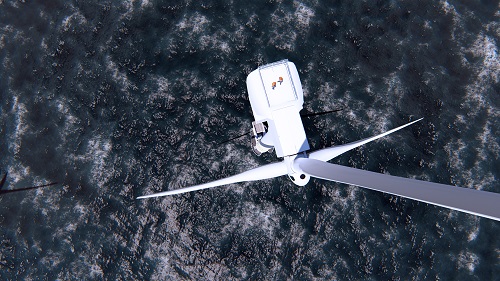IPCC Climate Change 2022 – Adapt or Perish
It is not the most intelligent who survive but the most adaptable, is a non-quote from Darwin. The latest IPCC report has put out a compelling message – adapting to the effects of climate change needs greater focus because we need to adapt even if greenhouse gas emissions could be stopped today.
Combating climate change is the defining challenge of this century. Following on from the physical sciences basis of the 2021 report, IPCC has sounded the alarm this week on the climate change impacts, adaptation and vulnerability in a 3675- page report. It concludes that some of the effects of climate change (such as glacier melting) caused by anthropogenic greenhouse emissions will not be reversed for decades or indeed centuries. Therefore, it is imperative that we roll up our sleeves and put increased emphasis on adaptation while maintaining the momentum on mitigation through renewables, green hydrogen and increasing electrification.
Work since the 1980s has consistently shown that the money spent on mitigation has major bang for bucks in controlling the effects of climate change – renewables, electric cars, efficiency and insulation – and has a square effect on diminishing the costs of adaptation – not only does mitigation reduce the GHG emissions and slow global warming, which in turn slows the need for adaptation spend. Unfortunately, the world has been on the flip side of this path; both climate change scepticism and wishful thinking over half a century have meant that incomplete effort has been made towards mitigation and even less effort has been paid to adaptation, bringing adaptation actions to a critical point.

ABL Group, acting in the renewables, oil & gas and maritime market sectors, have witnessed the unfolding climate change and its impact on society. We have also been at the dawn of marine renewables and have grown these activities to comprise 30% of our business. Though these activities are focused on mitigation, we have also started to define the necessary adaptation activities to climate change. We have surveyed the offshore wind industry to discover the extent of climate change adaptation actions and the level of industry awareness of climate change impacts and risk. The survey’s results will trigger industry guidelines, public policies and R&D projects. Reduction of climate change-induced risks is also key to provide reassurance to banks and investors, giving access to cheaper project finance, ultimately reducing the cost of offshore wind and improving its competitiveness against fossil fuel energy sources. Confidence to build in offshore wind projects will allow us to develop offshore wind farms for field lives longer than 25 years and at even larger scale.
It is a little-known fact that the offshore oil & gas industry anticipated climate change and began adaptation as far back as 1989. The author has worked on one of the pioneering projects which addressed climate change adaptation. In that case, because of the design life of 70 years for the Troll gas platform, the initial design airgap was raised a further 1-2m to account for the rising sea levels from global warming. In 2013, IPIECA, an Oil & Gas industry body published a strategy for climate change adaptation. However, this has not found universal traction in project design, partly because it is still unclear what quantifiable actions need to be taken. For instance, the design environmental criteria which define the platform strength (and thus cost) still relies on the assumption of “stationary” environment, whereas both the frequency and intensity of storms have been increasing. Such statistical models, which incorporate that “drift upwards” are still in their infancy.

In the maritime sector, we see some progress in addressing adaptation by ports and harbours but do not yet see any major adaptation in the design of ships. Increasing frequency and intensity of storms will have an impact on both the empirical (“rules of thumb”) and analytical approaches used in ship design. For instance, the ultimate strength and the fatigue assessments using the customary North Atlantic weather statistics will need to be updated. As IPCC estimates that historic 100-year storms will become 1-year storms by 2100, challenges await for designs of ships being commissioned today.
It is timely that IPCC has sounded the alarm on an aspect of climate change which has received relatively little attention, though ABL has taken the initiative with the appointment of a Head of Climate Change Adaptation and Resilience to redress exactly this balance. The moment is now for these sectors, be they maritime, oil & gas or renewables to stand up and adapt.

Dr RV Ahilan FREng
Chief Energy Transition Officer, ABL Group
